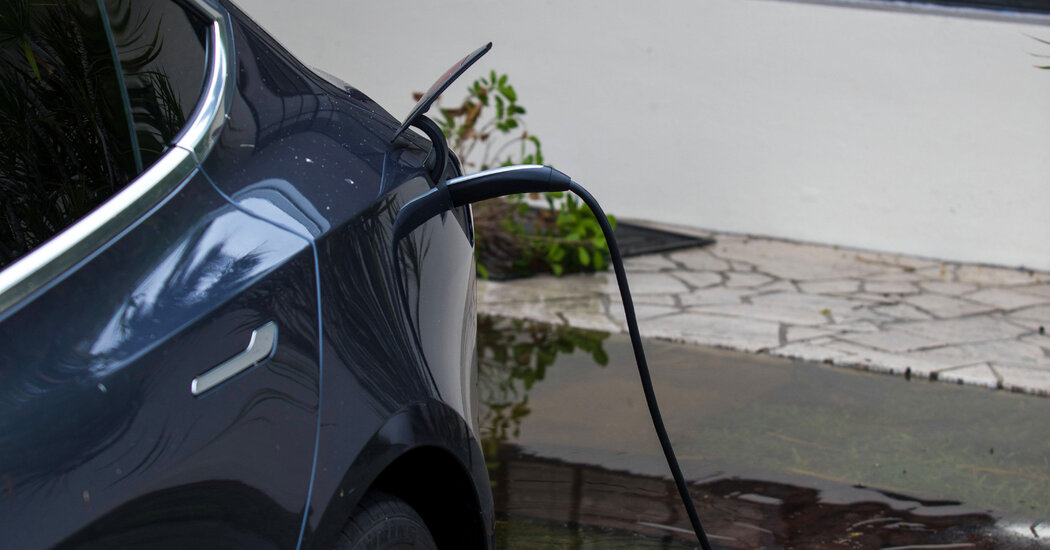E.V. batteries that are submerged in saltwater can catch fire after the floods subside, but experts say it’s a rarity.
Officials in Florida warned residents to move their electric vehicles away from potential flood zones ahead of Hurricane Milton to avoid the risk that the cars could burst into flames after being submerged in saltwater for extended periods.
“Keep electric vehicles and lithium-ion batteries away from floodwaters and storm surge,” urged the Facebook page for Hillsborough County, which contains Tampa.
Electric vehicles contain lithium-ion batteries, which can also be found in e-bikes and scooters, wheelchairs, golf carts, electric lawn mowers and tools like cordless drills. If these batteries are soaked in saltwater, some can ignite after floodwaters subside.
It’s a relatively rare problem, but the risk is real.
There were roughly three dozen fires associated with electric vehicles during Hurricane Helene last month, according to officials, at least one of which destroyed a home. More than 254,000 electric vehicles were registered in Florida at the end of 2023.
Why do batteries catch fire in floods?
If saltwater reaches the interior of a lithium-ion battery, it can cause the cells to short-circuit by conducting electricity between the positive and negative terminals. This generates heat.
In some cases, that heat can spur a chain reaction inside the battery called thermal runaway. Heat from one cell starts melting the plastic separators inside neighboring cells, which causes additional short-circuiting and generates more heat. The end result: a fire that can last for hours and is hard to extinguish.
